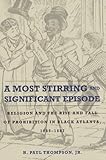Support H-Net | Buy Books Here | Help Support the NBN and NBN en Español on Patreon | Visit New Books Network en Español!
- African Studies
- African American Studies
- American Politics
- American Studies
- American South
- American West
- Asian American Studies
- Australian and New Zealand Studies
- British Studies
- Canadian Studies
- Caribbean Studies
- Central Asian Studies
- Chinese Studies
- East Asian Studies
- Eastern European Studies
- European Politics
- French Studies
- German Studies
- Iberian Studies
- India Studies
- Indian Ocean World
- Iranian Studies
- Irish Studies
- Israel Studies
- Italian Studies
- Japanese Studies
- Korean Studies
- Latino Studies
- Latin American Studies
- Mexican Studies
- Middle Eastern Studies
- Native American Studies
- Pacific Studies
- Polish Studies
- Russian and Eurasian Studies
- Southeast Asian Studies
- South Asian Studies
- Turkish Studies
- Ukrainian Studies
- Western European Studies
- World Affairs
- Animal Studies
- Anthropology
- Archaeology
- Business, Management, and Marketing
- Media
- Critical Theory
- Disability Studies
- Drugs, Addiction and Recovery
- Education
- Economics
- Finance
- Geography
- Gender Studies
- Genocide Studies
- Higher Education
- Human Rights
- Journalism
- Language
- Law
- LGBTQ+ Studies
- National Security
- Philosophy
- Policing, Incarceration, and Reform
- Political Science
- Politics & Polemics
- Public Policy
- Sex, Sexuality, and Sex Work
- Sociology
- Sound Studies
- Sports
- Urban Studies
- Big Ideas
- Celebration Studies
- Co-Authored
- Cover Story
- Historical Materialism
- History Ex Silo
- Invested Investor
- Landscape Architecture
- Mormonism
- NBN Book of the Day
- NBN Seminar
- Postscript
- Practical History
- Preparing for Life After Grad School
- Psychology and Climate Change
- Interpretive Political and Social Science

Jun 29, 2012
Charisma and the Fictions of Black Leadership
Summary
Picture the familiar scene: the visiting pastor thanks the local pastor for granting him the use of his pulpit; he sends out the call ("Can I just speak with you this morning?") and the congregation responds ("Yessir! Amen!"). The disclaimer follows: he is only the vessel through which the Lord will speak. Should he say something with which one disagrees take it up with the Lord. He pats his brow, grips the podium; throws away his notes, transitions to improvisation; cadenced speech follows, and the congregation responds in kind. Erica R. Edwards describes the aforementioned as the charismatic scene in Charisma and the Fictions of Black Leadership (University of Minnesota Press, 2012). The new author probes charismatic leadership and its interventions found in literature written by African Americans throughout the 20th century. The fundamental questions Edwards, assistant professor of English at the University of California, Riverside asks are: What is the seduction of charismatic leadership? And, how does it shape 20th century African American literary productions? The rise of white supremacy coupled with sharecropping as a system of peonage made emancipation essentially a non-event. In the face of domestic terrorism singular, male leadership became a necessary survival strategy. Still, there is apparent dissonance; reverence for the black male leader in African American culture does not translate to the literature. From W.E.B. DuBois's stage pageant "The Star of Ethiopia" (1913) to Marcus Garvey's speech performances in 1920s Harlem, NY; from George Schuyler's Black Empire (1936-38) to Zora Neale Hurston's Moses, Man of the Mountain (1939); from Toni Morrison's Paradise (1997) to postulations by Eddie (played by Cedric the Entertainer) in "Barbershop" 1 & 2 (2002, 2004, respectively) Edwards demonstrates when one depends solely on the convention of singular male leadership as the answer to solving the various communal needs of the people much is at stake: gender oppression; the violence of silencing; and, dismissal of all alternative forms of leadership, just to name a few. "The dream" of singular black male leadership has translated to the nightmare for the masses--and women, in particular--time and time again. In the end the book leaves readers with a set of critical questions regarding charisma and leadership. Erica R. Edwards's Charisma is a critical read for anyone who is interested in the relationship between literature and real life scenes of black leadership--particularly as it plays out in the black political sphere in the post-civil rights era.


























































































